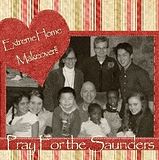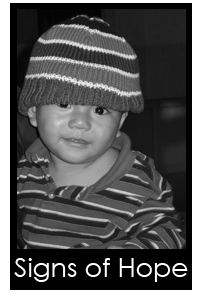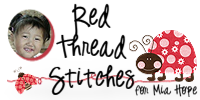One family: What I learned by returning to my orphanage
By Zoë Rose Xia Shi Ting Guastella
Mon Feb 23, 2009, 11:04 AM EST
Cambridge - Last summer, two friends and I returned to the Wuhan Child
Welfare Institute in China to work. This was difficult to do because
it is against Chinese law for foreigners to work in a state-run
facility. We got special permission because the orphanage was once our
home. As the first children to be adopted from China in June of 1992,
we were also the first to pave the way to return. This fall, we raised
$25,000 through Families with Children from China for heart surgeries
for these kids. The following is excerpted from a series I wrote for
the China Connection, a journal for adoptive parents, and the CRLS
Register Forum.
With only one year of high school Chinese under my belt, I walked into
the toddler room of my orphanage and wondered how I would be able to
communicate.
I found five teachers in bright yellow T-shirts playing with special
needs kids, which, because China is more prosperous, are now the kids
available for adoption. Some had Down syndrome, others cerebral palsy,
deafness, autism, or dwarfism, to the extent that I could determine.
And they were the cutest kids I'd ever seen.
Let me tell you about Lap Plopper. Her name is Wu Feng Gui. She had
three pigtails, one for each year of her life, and was born with Down
syndrome. Like all the children in the orphanage, she had been
abandoned to the care of Director Li, the kind-hearted woman who is
now responsible for them all.
I sat down cross-legged on the floor to be at her height — Lap Plopper
took one look at me, waddled over, and plopped her naked bottom in my
lap. "Ni hao," I said softly into her ear, and she thrust out her arms
and laughed. Her top pigtail tickled my nose. Maybe I'd said "hello"
strangely or maybe she just enjoyed the triumph of her conquest. Soon
other toddlers crawled my way as they, too, wanted to investigate the
American newcomer. For that point on, communication was not a problem.
When I was in China, I discovered that children with disabilities were
something other than their labels. To me, each child was totally fun,
amazing, and adorable. There was Wu Zhong Hang, an intelligent and
extremely helpful Albino boy, who looked like a California tow head
and who drew a heart and put his name in Chinese characters in it, and
then gestured for me to do the same. I took one look at his face and
thought that he could be adopted in the West in a minute. I wondered
what would happen to him.
I wondered about all of the children. Some were very intelligent:
would they be grouped with children with greater needs or be given a
chance to succeed? Some seemed to have disabilities that could be
fixed, like a cleft palate. Others, I felt, would be in the care of
the state forever. Quickly, I came to realize that each child has a
story — and that my friends and I, who had been adopted 16 years
earlier, had our stories too, yet ours were ones with happy endings.
We had families in Cambridge, Brookline, and Newburyport. For these
children, the next chapter of their stories was not so clear.
My experience with the older girls was more complicated — most of them
had no special need except their lack of parents. They were anxious,
interested, shy, quizzical, and looked at me as "one who got out." And
while they're treated well, they are not applying to college. And all
because they were abandoned girls who didn't happen to be babies when
an adoption application arrived: it's hard to imagine being too old
for something when you're only nine years old.
We danced together. We laughed a lot. We stumbled over Chinese and
English. I had brought a bag of donated swim suits, goggles, and caps
and taught six how to swim. And — as a tribute to the Beijing Olympics
— they actually learned the elementary backstroke, despite being
terrified of getting in the water. But always there was that look in
their eyes. We all understood the powerful role coincidence had played
in our lives.
On my last day in Wuhan, I heard good news. One of the older girls,
whom I taught to swim was going to be adopted by a family in San
Diego. I also learned that the files of my albino boy, Wu Zhong Hang,
had been sent to the authorities at Civil Affairs who assign children
to families. I certainly hope he gets a loving family.
On the day I left, I met up with Lap Plopper, whom I hadn't seen in
several days. I wondered if she would remember me. She held out her
arms and I picked her up with a rocking hug. When her teacher told her
"it's time to go," she buried her head in my arms and shouted, "Bu!"
(No!) and I thought, she understands! She used her words! Hurray for
Lap Plopper!
I left knowing that she, like Wu Zhong Hang, Director Li, and so many
others, will never leave me. We are forever one family.
Shortly after writing this, I found the name of the policeman who took
care of me on March 6, 1992, when I was found. His name is Ge Zhiyong
and he is as far back to my beginnings as I've been able to trace.
While in China, I also found a note from my birth parents who were
victims of a flood. I hope to look for them one day!
Sunday, March 1, 2009
Subscribe to:
Post Comments (Atom)





.jpg)











No comments:
Post a Comment